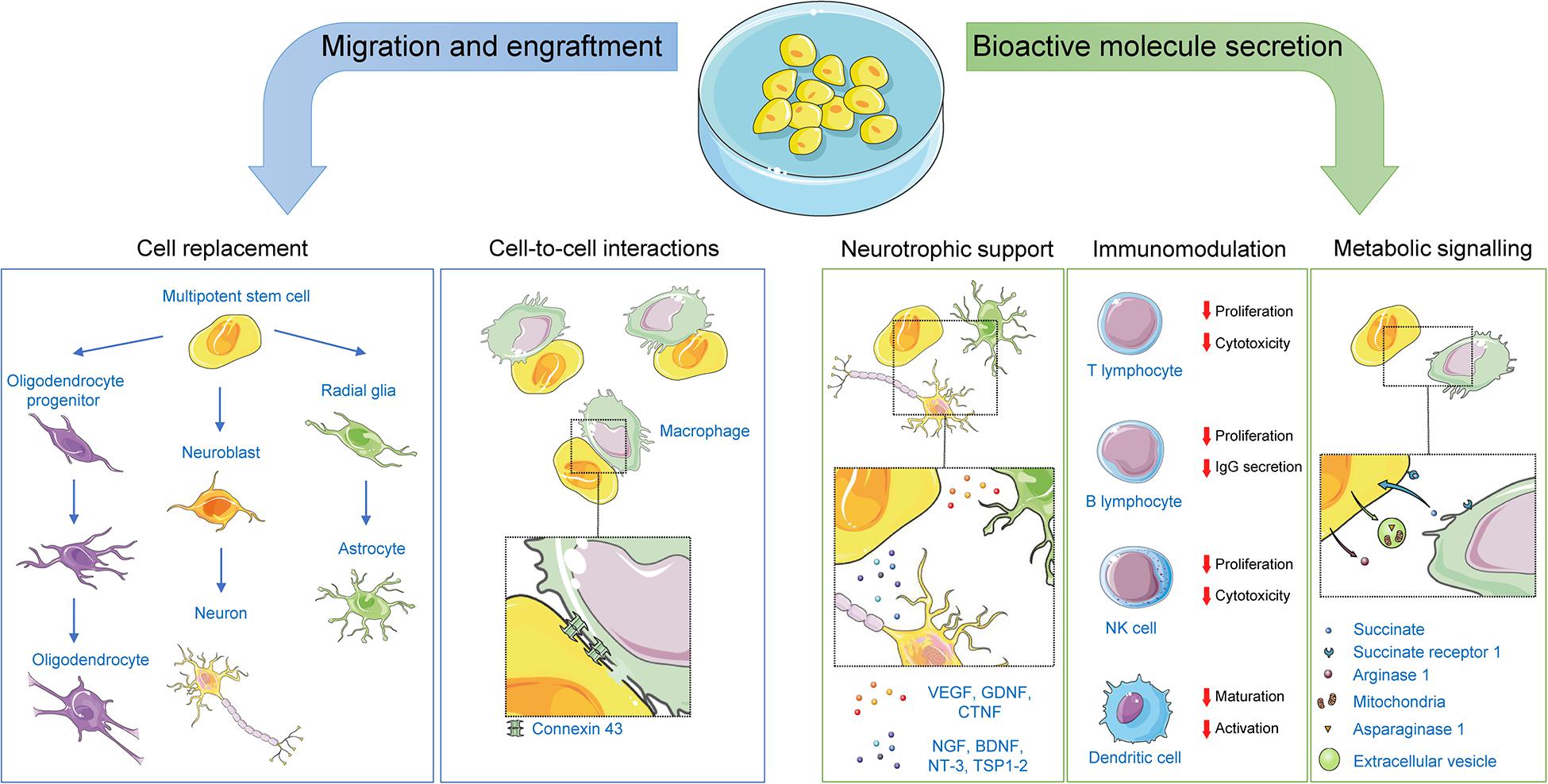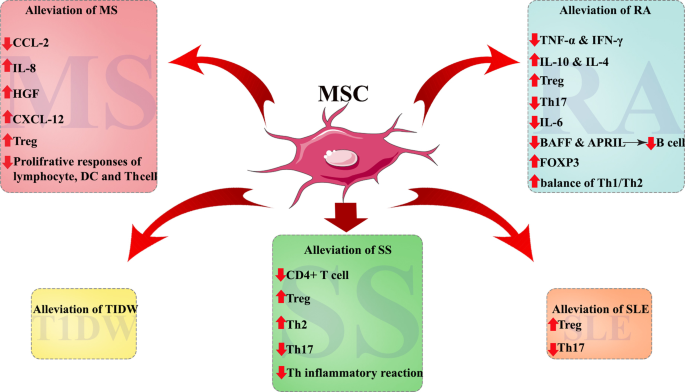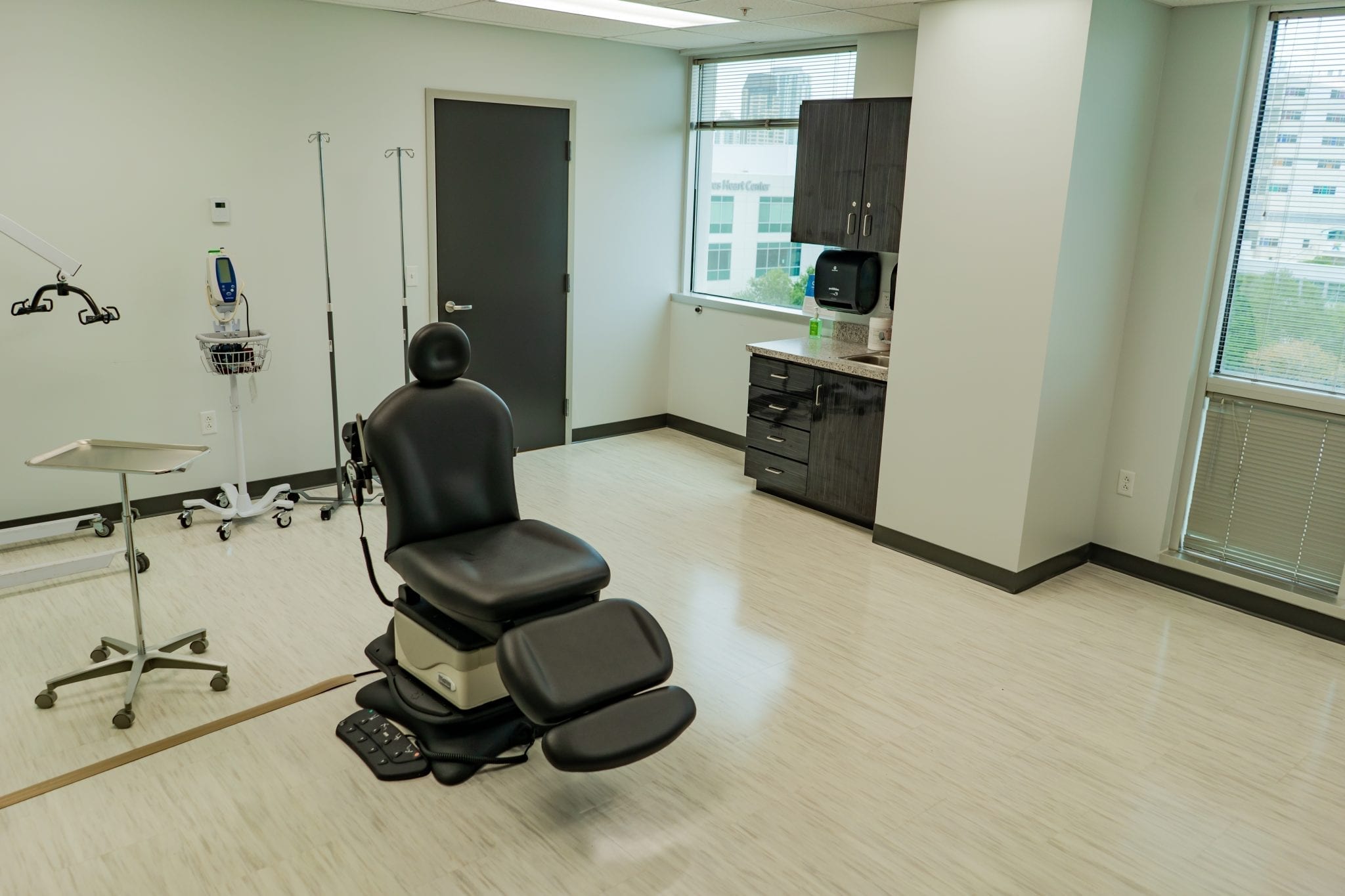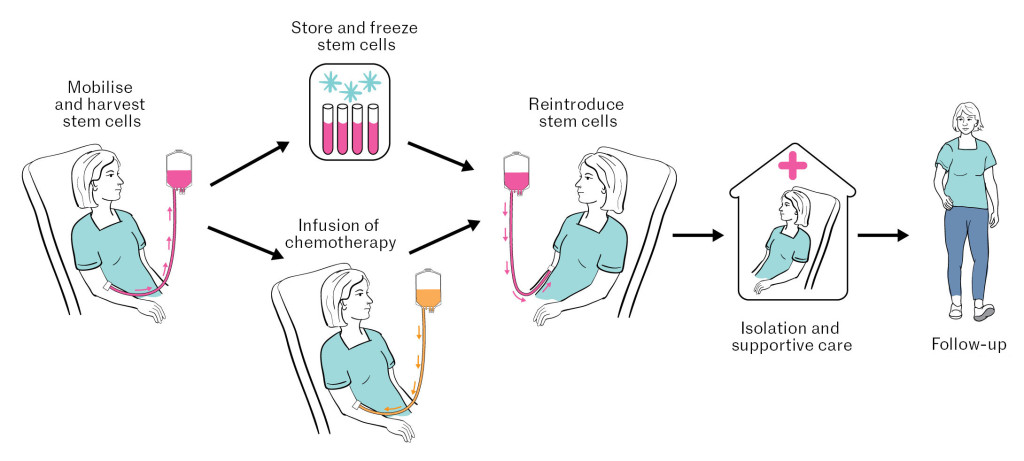Things about Regenerative Medicine For Multiple Sclerosis
Wiki Article
Not known Incorrect Statements About Regenerative Medicine For Multiple Sclerosis
Table of ContentsThe Regenerative Medicine For Multiple Sclerosis StatementsThe Main Principles Of Regenerative Medicine For Multiple Sclerosis Some Ideas on Regenerative Medicine For Multiple Sclerosis You Should KnowRegenerative Medicine For Multiple Sclerosis Can Be Fun For EveryoneRegenerative Medicine For Multiple Sclerosis - QuestionsThe 9-Second Trick For Regenerative Medicine For Multiple SclerosisLittle Known Questions About Regenerative Medicine For Multiple Sclerosis.
The mesenchymal stem cells transplanted throughout stem cell treatment can divide and grow to develop new cells that can replace the damaged cells of the nervous cells. This could recover neurological functions in individuals with this condition. These advantages of stem cell treatment are further supported by the capability of MSCs to promote healing.Patients with multiple sclerosis are normally treated with mesenchymal stem cells. These are multipotent stem cells that have the ability to separate and mature to develop a variety of cell key ins the body. When hair transplanted, these stem cells can develop to form healthy and balanced nerve cells therefore sustaining the regeneration of the damaged cells of the nervous system.
As soon as hair transplanted, the stem cells migrate to locations of swelling or damages within the central nerves (CNS). They are normally drawn in to the websites of injury where the body immune system is attacking the myelin sheath, the safety treatment of nerve fibers. The stem cells work by promoting the repair work and regrowth of damaged myelin, possibly restoring function to influenced afferent neuron.
How Regenerative Medicine For Multiple Sclerosis can Save You Time, Stress, and Money.
Stem Cell Research on MS The National Numerous Sclerosis Society, along with various other companies, is proactively funding and supporting study right into mesenchymal stem cell therapy for multiple sclerosis to discover their potential and boost treatment procedures. The objective is to establish safer and a lot more effective means to use stem cells in treating MS.
An Unbiased View of Regenerative Medicine For Multiple Sclerosis
Here are below from testimonials of the Swiss Medica clinic. The individual traveled from Romania seeking therapy for MS after hearing favorable responses concerning stem cell treatment for the illness.Get a cost-free online consultation to find out exactly how stem cells will help your situation, and what are the period and cost of the treatment. Clinical Expert, Swiss Medica medical professional Lemus, H. N., Warrington, A. E., & Rodriguez, M. (2018 ). Multiple Sclerosis: Mechanisms of Disease and Strategies for Myelin and Axonal Repair.
The Main Principles Of Regenerative Medicine For Multiple Sclerosis

Stem cells are cells in the body that can develop into specialized cells that serve a particular function. They are likewise able to generate specific copies of themselves. There are two primary kinds of stem cells: embryonic stem cells and grown-up stem cells. are discovered in the developing embryo and can develop into the majority of kinds of cells in the body.
are located in some grown-up tissues and body organs consisting of the bone marrow, skin, blood, and mind. Grown-up stem cells are not as flexible as beginning stem i thought about this cells and are as a result more minimal in regards to the kinds of cells they grow right into. The unique residential or commercial properties of stem cells offer assurance for brand-new treatments that can slow/halt MS illness activity and fixing cells damage in the main worried system.
Getting My Regenerative Medicine For Multiple Sclerosis To Work

The treatment entails gathering stem cells from a person's very own (autologous) bone marrow. The individual is then treated with chemotherapy to diminish the body immune system and stem cells are reintroduced right into the body where they grow right into new, healthy and balanced immune cells - Regenerative Medicine for Multiple Sclerosis. Stem cells can be injected into the body in various methods

In 2000, the MS Culture of Canada and MS Scientific Research study Foundation funded a clinical test entailing HSC transplants, led by Drs. Mark Freedman and Harry Atkins from the Ottawa Health Center Study Institute/University of Ottawa. The aHSC therapy offered in Canada is a treatment that uses high-dose chemotherapy, likewise called conditioning.

Regenerative Medicine For Multiple Sclerosis for Beginners
Neural stem cells (NSC) are located in the mind and can develop into different kinds of mind cells including neurons, oligodendrocytes, and astrocytes. NSCs may offer to fix or secure the brain and regulate the immune system. Early clinical tests in non-human primates demonstrated that therapy with NSCs profited the development of MS-like condition in pet designs.The arise from these safety studies are favorable for future stem cell and regenerative medicine treatments in MS. Future professional trials (phase 2 and 3) with bigger numbers of participants and controls are required to examine the efficacy of this treatment for MS. As shown by the examples above, there is a vast array of research study occurring that will certainly give added solutions regarding using stem cells to deal with MS.
Stem cell check it out therapy is considered risk-free, but, like any clinical procedure, it carries some dangers, such as temporary swelling or pain at the shot site. However, severe negative effects are uncommon when performed by certified professionals.
The Ultimate Guide To Regenerative Medicine For Multiple Sclerosis
Several sclerosis (MS) is a persistent condition of the main nerves that influences the mind and back cable. It is characterized by the deterioration of myelin, a substance that covers nerve fibers, resulting in disruptions in communication between the brain and the remainder of the body. Symptoms can differ extensively and consist of muscular tissue weak point, vision troubles, inequality, and exhaustion.Several sclerosis is identified by the immune system erroneously attacking the safety sheath (myelin) that covers nerve fibers, causing communication concerns between the mind et cetera of the body. The disease can bring about the degeneration or irreversible damages of nerves. Symptoms differ widely among individuals and can consist of tiredness, flexibility concerns, pain, and cognitive changes.
Report this wiki page